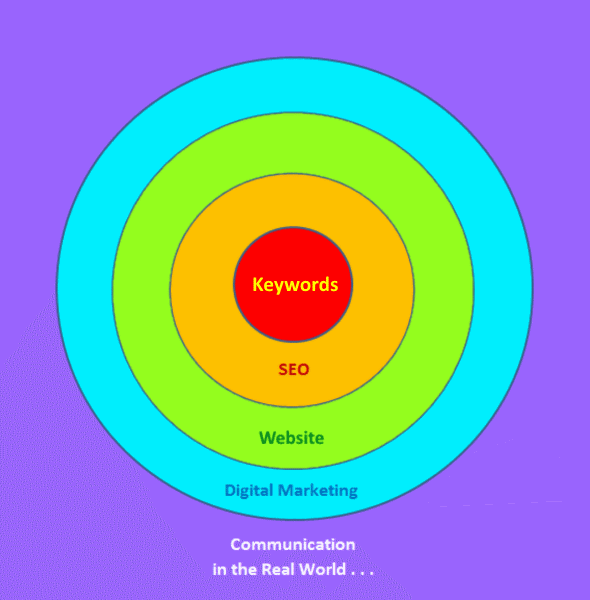
The whole marketing thing could be visualized as a target, with Keywords as the bullseye.
Or, perhaps it could be pictured as an earth
- with the real world as the sky,
- digital marketing as the crust,
- your website as the mantle,
- SEO as the outer core,
- and keywords as the inner core!
What are keywords? Actually, for a start that isn't really what they are. What we are talking about are more accurately called ‘key phrases’. Phrases that a customer will key into their search engine when searching for something. The search engine will take the entered phrase, look through its gigantic database (do you know how many pages Google has on its index? - more than 60 trillion), and find what it thinks will be the best matches for the phrase entered.
There are several important things we need to keep in mind about these key phrases.
The first thing is that they reflect two attributes of the user's search - topic, and intent. The topic part is not hard to grasp - if I want to find out about poetry, I'll key in “poetry”, “poems” etc. If it's about cars - guess what it will be. Etc., etc.
The second thing is perhaps more subtle and I'll come back to this in my post on keywords and customer intent.
